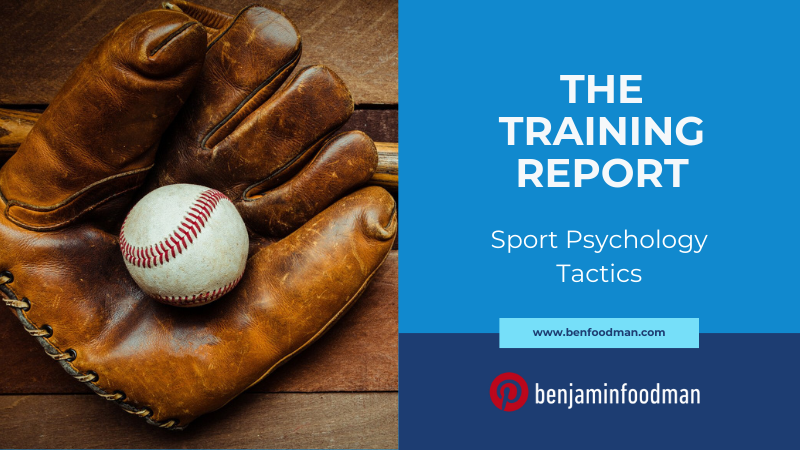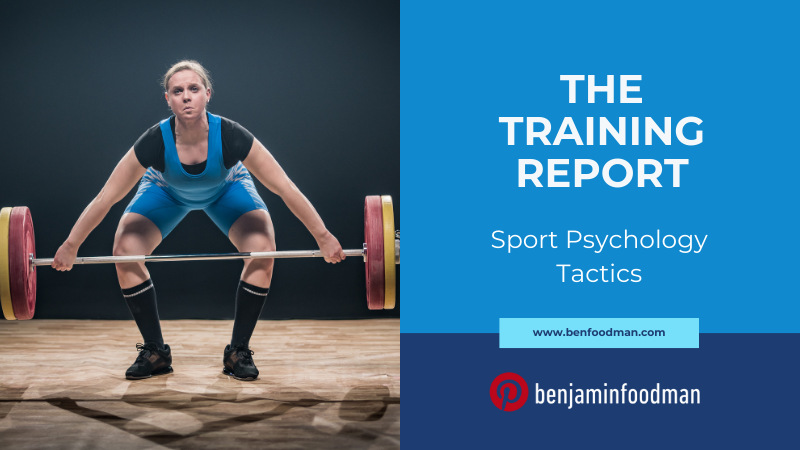Sport Psychology Tactics - Why Brainspotting & Biofeedback Enhances Performance Psychology For Racecar Drivers
About the Author
Ben Foodman is a licensed psychotherapist & performance specialist. He owns his private practice located in Charlotte North Carolina where he specializes in working with athletes to help them overcome mental blocks (the yips), PTSD, ADD / ADHD and achieve flow states through the techniques of Brainspotting & Neurofeedback. If you are interested in services, use the link here! Enjoy the article below!
Table Of Contents
Introduction: How The Modern Sport Psychologist Works With Professional Racecar Drivers
Part I. Understanding The Physical & Mental Demands Of Racecar Driving
Part II. Exploring Specific Neuroscience That Explains Racecar Driving Performance Psychology
Part III. Why Brainspotting & Biofeedback Are Superior Mental Training Tools For Motorsport Athletes
Introduction: How The Modern Sport Psychologist Works With Professional Racecar Drivers
Casual observers watching motorsports only get a partial glimpse into what is involved with performing as a professional racecar driver. Whether fans are watching 24 Hours of Le Mans, NASCAR cup series, F1 or any other promotion, people rarely get to see the ‘behind the scenes’ work leading up to a race. The fact of the matter is, is that motorsports are one of the most demanding and brutal sports competitions on the market. Furthermore, racecar drivers are elite athletes that have to train mentally and physically in ways people cannot even imagine. This is because the requirements to perform at an elite level demand nothing less due to the fact that virtually all competitors are pushing the limits of human performance enhancement. Because I am located in Charlotte, North Carolina, which is considered to be the ‘hub’ of motorsports in America, I am fortunate to have been able to work with many racecar drivers over the years, helping them train their minds to be ready for race day.
These athletes have competed at all levels ranging from competitive Go-Karts, to drivers in the Cup Series. But regardless of what level these athletes train at, I have found there are certain interventions that work well and others that are not conducive to mental training. I believe many of these methods have transferable application to other sports, and I want to provide readers with some insight as to why and how they can use these mental training approaches in their own competitive space. Two specific interventions that I have had the most success with are Brainspotting and Biofeedback. For this issue of the Training Report, I am going to review the mental and physical demands of motorsports in part I., in part II. I will review the neuroscience that is important for us to focus on when working with this athlete population, and in part III. I will go into detail about using a multi-modal approach of Brainspotting and Biofeedback.
Part I. Understanding The Physical & Mental Demands Of Racecar Driving
Being a professional racecar driver is one of the most athletically demanding sports in the world. What people see in video games or on television is a far cry from reality. Depending on the race or the car, temperatures inside the cockpit can range between 100 to 140 degrees. The inside of the car is not built for comfort either. Many of these cars are installed with a roll-cage, and any accessories that would normally be in an average car are removed in order to keep the vehicle both lighter and faster. This leads to the fact that the cockpit can be incredibly confined meaning that the driver could be susceptible to cramping and excessive muscle tension as the time of performance extends. Many drivers are outfitted with an air-conditioned helmet and cool-suit…but in my experience it is not uncommon at all for those features to fail. Even worse, if the cool-suits malfunction then hot water will be pumped on the athlete’s core. High-end figures suggest that some racecar drivers in different vehicles may need to apply 350 lbs of force on the brakes of the car. Depending on the race, drivers may need to do this over and over again when making entry on turns. But these are just some of the physical demands.
Depending on the racing promotion, racecar drivers have reached speeds between 200 to 360 miles per hour. This means that athletes have a limited ability to process information due to the speed at which they receive data about what is happening around them while simultaneously having to make the as many efficient decisions as possible over the course of the competition. What people don’t realize is that there are two factors working against a racecar driver’s brain at the same time during competition: time and energy. As the driver gets deeper into the race they lose time, but as they lost time they also burn calories. Research shows us that on average, a sedentary human’s brain consumes 25% of all stored energy reserves yet only encompasses approximately 2% of total bodyweight. We also know from research that they more cognitively demanding a task is, the lower our glucose levels will become. When we factor in these considerations into the demands of being a racecar driver, it becomes easy to understand how drivers burn anywhere from 2000 to 4000 calories per race. But the physical demands only tell us part of the reason why racecar driving requires specific interventions for psychological enhancement. We need to understand the neuroscience on a deeper level to truly help these athletes achieve peak processing potential.
Part II. (Section A) Exploring Specific Neuroscience That Explains Racecar Driving Performance Psychology
What we know from a psychological perspective is that in the same way time and energy will work against the driver on the race track, it will also work against them as their careers move forward over long periods of time. Professional racecar drivers are no different than NFL players. Whether these athletes are competing at 24 Hours Of Le Mans, NASCAR Cup series, or F1, the psychological stress that these individuals will undergo will always extract a price on these athlete’s minds. We know this, this is predictable. Our brains are constantly changing to the stress that we experience and we have plenty of research and data to back this up. In the book The Biology Of Desire by Marc Lewis, PhD., the author goes on to highlight how the brain changes to stress stimulus: We need to understand how brains change normally. In fact, brains are supposed to change. Brain change-or neuroplasticity-is the fundamental mechanisms by which infants grow into toddlers, who grow into children, who grow into adults, who continue to grow. Brain change underlies the transformations in thinking and feeling that characterize early adolescence.
In fact, developmental neuroscientists estimate that ‘as many as 30,000 synapses may be lost per second over the entire cortex during the pubertal/adolescent period. Brain change is necessary for language acquisition and impulse control in early childhood, and for learning to drive a car, play a musical instrument, or appreciate opera later in life. Brain change underlies religious conversion, becoming a parent, and, not surprisingly, falling in love. Brains have to change for learning to take place. Without physical changes in brain matter, learning is impossible. Synapses appear and self-perpetuate or weaken and disappear in everyday learning. Learning alters the communication patterns between brain regions and builds unique configurations of synapses (synaptic networks) that house knowledge, skill, and memory itself. The connection between learning and brain change has been studied for more than a hundred years: it was reasonably well understood by the 1940’s, and the search for specific cellular mechanisms continues today. But why is understanding that the brain will change on a cellular level important when we think about mental training with racecar drivers?
Part II. (Section B) Brainspotting Work With Racecar Drivers & Performance Psychology
Overtime, as the racecar driver’s brain adapts to the stress experienced in racing (and outside of competition) the brain will reflexively adapt in ways that are not ideal for peak performance outcomes. In the book This Is Your Brain On Sports by David Grand, the author goes into great detail to explain the neuroscience behind the sports-related stress and how the brain responds to stress events. The author describes as follows ‘In parallel fashion, the brain attempts to always move toward a state of psychological equilibrium. Over the course of our lives, we are exposed to a variety of life experiences, some positive, some neutral, and some negative. Through a natural assimilation process, the brain adaptively processes these experiences so they are constructively integrated. What is useful from the experience is learned and stored in the brain with the appropriate emotion and is available for future use. When an experience is successfully assimilated or digested it is stored in the brain with little attached intense emotion or physical sensation. When we recall such an incident, we don’t reexperience the old emotion or sensation with it. In this way we are informed by our past experiences and memories but not controlled by them and with sports our present athletic performances are not burdened by emotional or physical baggage from the past, only learned experience. By contrast, trauma or any strongly negatively charged experience isn’t adequately assimilated or processed. Instead, the upsetting incident remains stuck in the system in broken pieces’.
The author continues, ‘ The body instantly memorizes the physical experience of the trauma in exquisite detail, including the body sensations of the impact and pain, along with the associated sights, sounds, smells and tastes. The attached emotions and where they are felt in the body are frozen as well. The brain is overwhelmed and instead of getting digested, all of the information attached to the injury, including the negative thoughts is stored in the brain in exactly the same form it was initially experienced. Days, week, months or even years later when the athlete is in a situation reminiscent of the original trauma or experiences prolonged stress, the upsetting experience may be unconsciously activated, thus interfering with the performance of the moment. These components represent all of the sensory details from the earlier event that were frozen in the brain and body in their original disturbing state: the images, lighting, emotions, physical movements, sounds, or smells. The unique sensory details later returning to consciousness cause the performance disrupting symptoms so common in mental blocks.’ Some people might question if this is an isolated opinion about sports. In some ways it is because the majority of sport psychologists have limited to no training on the mechanisms of trauma on the brain. But leading experts such as Dr. Bessel Van Der Kolk add weight to the validity of this argument.
Part II. (Section C) How Athlete Mental Counselors Use Biofeedback With Racecar Drivers
In the book The Body Keeps The Score, Dr. Bessel Van Der Kolk explains how the mechanisms of the brain respond to stress (or trauma), which in turn can lead athletes towards regressing mentally in racing performance: the emotional brain has first dibs on interpreting incoming information. Sensory information about the environment and body state received by the eyes, ears, touch, kinesthetic sense, etc. converges on the thalamus where it is processed and then passed on to the amygdala to interpret its emotional significance. This occurs with lightning speed. If a threat is detected, the amygdala sends messages to the hypothalamus to secrete stress hormones to defend against that threat. The neuroscientist Joseph LeDoux calls this the low road. The second neural pathway, the high road, runs from the thalamus via the hippocampus and anterior cingulate, to the prefrontal cortex, the rational brain, for a conscious and much more refined interpretation. This takes several microseconds longer. If the interpretation of threat by the amygdala is too intense, and/or the filtering system from the higher areas of the brain are too weak, as often happens in PTSD, people lose control over automatic emergency response, like prolonged startle or aggressive outbursts. As important as these areas of study are, we need to go even further in understanding the mind-body connection and how this sport impacts athletes psychologically.
Another area where the top sport psychologists focus their work is through understanding HRV and how to focus on the larger impact that the autonomic nervous system has on athlete’s mental performance. Dr. Stephen Porges, one of the more well-known experts within the field has made groundbreaking discoveries and provided excellent descriptions about how this system works. Per his website, the following quote illustrates important characteristics of this system, “The mind and body are connected through the Vagus nerve, the longest nerve in the autonomic nervous system, stretching from the brainstem to the colon. It is our internal control center, allowing the brain to monitor and receive information about many of our bodily functions”. We know from research that if left unchecked, athletes and other individuals with low HRV have issues associated with mortality, myocardial infarction, coronary heart disease, and congestive heart failure. When sport psychologists help enhance HRV, HRV in this case is associated with improved autonomic nervous system balance. Research on athlete populations shows that when these benefits are gained, athlete sport performance outcomes improve while also reducing the risk of complex motor skills from being compromised. Now that we have a solid, introductory understanding on where racing can adversely affect racecar athlete mental performance, let’s dive deeper into the actual tools these athletes can use to prevent the yips, reduce mental blocks, and achieve peak performance.
Part III. (Section A) Why Biofeedback Is A Superior Mental Training Tool For Motorsport Athletes
Biofeedback is a technique by which sport psychologists monitor and display what is happening in the athlete’s mind and their body’s physiological reactions. There are several different traits that sport psychologists and mental performance consultants can focus on in order to help the athlete with this technology. In the book Biofeedback & Neurofeedback Applications In Sport Psychology edited by Benjamin Strack, PhD, Michael Linden, PhD & Vietta Wilson, PhD, the authors give examples of where Biofeedback technology is used.
Heart Rate: Elevated heart rate may increase reaction time, while stabilization of heart rate may increase endurance, and cardiovascular efficiency.
Respiration - Improper respiration may lead to performance inefficiency or ‘choking’ and hyperventilation.
Muscular Tension - Excess muscle tension can inhibit movement speed, rhythm, timing & flexibility.
Sweaty Palms - An indirect measure of emotional reactivity and anxiety
Brainwave Activity - Athletes who learn to control brainwaves can enhance their ability to pay attention, control their emotions, and minimize a busy brain.
Peripheral Body Temperature - Measures blood flow or blood-vessel constriction in the hands and feet. Stress can cause the constriction or shutting down of blood flow, which inhibits recovery from strenuous workouts or minor and major injuries.
Usually when an athlete works with a sport psychologist during an actual biofeedback session, the athlete will have various sensors attached to different areas of the body. These sensors can range from clips attached to their ears, electrodes attached to their head, or patches attached to their skin (there are no needles, there is no invasive aspect to the procedure). These sensors will relay the information that they are detecting from the body to a computer, the computer will analyze the information (e.g. heart rate, body temperature, etc.) and then display what is actually happening in the athlete’s body during this feedback, while also providing information about when optimal body changes are occurring, which can come in the form of some type of reward (e.g. bell ringing, movie playing, etc.).
Since heart rate variability (HRV) reflects the time between heartbeats, it directly relates to the electrical activity stimulating the heart, specifically the sinoatrial node (the heart's natural pacemaker). Low HRV is associated with mortality, myocardial infarction, coronary heart disease, and congestive heart failure. When sport psychologists help enhance HRV, HRV in this case is associated with improved autonomic nervous system balance. Research on athlete populations shows that following these benefits their sport performance outcomes improve while also reducing the risk of complex motor skills from being compromised. The biofeedback HRV sessions accomplish this through various forms of deep breath work. When people talk about the mind-body connection, they are oftentimes referring to how synchronized our bodies are with our brains during performance outcomes. The heart-brain connection is one of the most significant connections athletes can train. There are several reasons for this. First, the heart is what drives our autonomic nervous system (sympathetic nervous system is the gas, i.e. fight or flight, where the parasympathetic is the brakes, i.e. more calms states). During motorsports athletes are exposed to high pressure situations which place an incredible amount of stress on our bodies and minds. This stress can oftentimes increase sympathetic nervous system activity, which can actually be a good thing for sports performances. Sympathetic nervous system activity can sharpen our focus and speed up decision making…but not without a cost. By regularly engaging in Biofeedback training, you can train your brain and body to enhance your endurance, which in turn will reduce your calorie burn, and by extension allow you to make better decisions the deeper into the race you get. The more calories you burn, the worse your decision making gets as time goes on. The calmer you can stay, the better your decisions will be as you get closer to the finish line!
Part III. (Section B) Why Brainspotting Is A Superior Mental Training Tool For Racecar Drivers At 24 Hours of Le Mans & NASCAR
Brainspotting is a brain-based psychotherapy technique that utilizes the client’s field of vision to identify unresolved psychological issues. In Brainspotting we say ‘where you look affects how you feel’ and through this process clients have the ability to access the parts of their brain that traditional psychotherapy approaches such as cognitive behavioral therapy are unable to do. This results in clients being able to directly address the true ‘underlying’ issue (which we refer to as a Brain Spot) that has created conflict allowing individuals to move from needing to constantly cope, to not needing to cope at all. Brainspotting can be used to help anyone who is dealing with mental blocks, the yips, psychologically traumatic events, chronic pain issues from injuries, as well as individuals who are trying to access deeper levels of creativity or cultivating mental flow states. When we think about the potential issues that racecar drivers deal with such as concussions, TBIs, car crashes, witnessing colleagues crash, sport humiliations, sports-injuries, out of sport trauma (e.g. car accidents, interpersonal relationship issues), it can be easy to see why this intervention pair perfectly with this athlete population.
The goal of all psychotherapy interventions are to help clients move from dysregulation to regulation. For instance if you are a racecar driver and you have been experiencing mental blocks such as increased pre-performance anxiety or fear responses, this can be considered a state of dysregulation. Because almost half of the brain is dedicated to vision, we use the clients field of vision combined with focused mindfulness to help engage the regions of the brain that are responsible for regulation and bypass the regions that are not! This physiological approach can help clients achieve their desired psychological outcomes. When athletes work with a sport psychologist who uses Brainspotting, they will first identify what the issue is that they would like to resolve. These issues can range from experiencing pre-performance nerves in sports, to having anxiety about playing music in front of large crowds. Clients discuss the issue in-depth and then the sport psychologist invites clients to have their eyes follow a pointer that the clinician will move in certain directions to identify the eye position that is relevant to the topic that the client is looking to resolve. Once the eye position is identified, the client will hold that eye position for either several minutes up to two hours potentially until the issue is resolved.
Note To Reader:
If you are an athlete reading this segment of the TRAINING REPORT, hopefully this content was helpful! I put the Training Report together because I felt like many of the discussions on issues such as the Yips/mental blocks, strength training & other subject matter on athlete performance concepts were really missing the mark on these ideas (e.g. how trauma is the direct cause of the Yips). If you are interested in learning more, make sure to subscribe below for when I put out new content on issues related to sport psychology & athlete performance! Also, if you are looking to work with a mental performance specialist, you are in the right place! USE THIS LINK to reach out to me to see if my services are the right fit for your goals!
ARE YOU ON THE LIST?
Make sure you’re signed up to Ben’s mailing list to receive news & updates on new strategies in sport psychology, upcoming workshops & products. Don’t wait, sign up now!




















































































